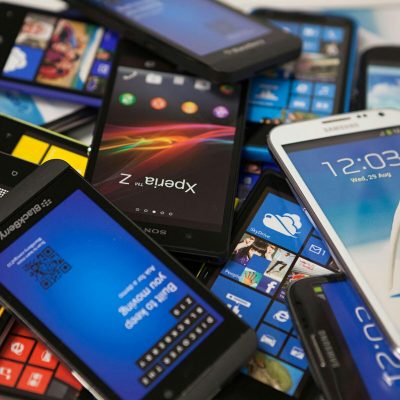 Its makers have always done the retail of mobile devices like smartphones and tablets with a particularly heavy emphasis on brands and their respective philosophies. The marketing of such retail items commonly stress the belief systems that go with the brands that eventually find alignment with the consumer goals that make tech products in vogue very successful in the market.
Its makers have always done the retail of mobile devices like smartphones and tablets with a particularly heavy emphasis on brands and their respective philosophies. The marketing of such retail items commonly stress the belief systems that go with the brands that eventually find alignment with the consumer goals that make tech products in vogue very successful in the market.
Although mobile devices made by the most popular and widely used brands all have their respective advantages over each other which they usually hold up high for consumers to know, preferences would always be made by the latter according to personal perceptions about the user experience. There are certain factors that contribute to the user experience that consumers would always go for inspite of the fact that there would always be features and functionalities willingly being made available to them by brands.
In other words, consumers would always gravitate to the emotional content associated with the use of tech products first (how it feels to use or own one) before they would consider the technical aspect of mobile devices — what makes smartphones and tablets work wonderfully. Consumers’ buying decisions are most likely to be affected by the following user experience elements:
- The joy of buying smartphones/tablets. Contrary to general belief that the user experience begins once the consumer tests out his newly bought mobile device, the user experience really begins the moment any consumer becomes interested in purchasing a new mobile device. Whether the customer inquires virtually or makes a personal inquiry at a tech gadget store and gets his/her first hands-on experience with the tech product, this results in an initial taste of satisfaction. The level of excitement a customer feels with such an experience already counts as part and parcel of the user experience.
- The pride of ownership. Apple product buyers know this and believe being proud owners of iPhones or iPads and other things Apple and fitted with iOS make them feel special. The high price tag of exclusionary tech tends to equate with status symbol. The same in-vogue tech appeal goes into lay with Samsung tech products minus the exclusionary tech platform and business model. Consumers derive a certain sense of confidence and being with-it simply by owning them.
- Convenience. Consumers couldn’t be expected to fully digest the main ideas behind the advanced technology running mobile devices; the functionalities, and the features that go with their breakthrough tech. Not everyone, after all, would want to delve too much in geeky techie talk and concepts. However, what would eventually matter to the average consumer are the conveniences being enabled by features and functionalities in smartphones and tablets. For as long as mobile device users learn quickly about the right buttons to press and know what happens next once they do — conveniently and without much tech skill required, that by itself explains the user experience.
- The element of fun. High tech for the average mobile device user and consumer wouldn’t really tick if the use of the tech doesn’t come with a serviceable amount of fun. While most mobile devices are designed for work purposes primarily, the way you would always prefer to use them and handle such devices need to be under a user-friendly premise that takes fun into the equation. This is why there are cameras, web access, and other multi-media capabilities built into them.
- Practical use. Of course, for any mobile device to matter, it would have to be of practical use to the average consumer. This is the most basic premise why he/she would want to purchase and own one in the first place. All else wouldn’t truly be of consequence once the consumer surmises that a mobile device isn’t, couldn’t and wouldn’t be of practical use to him/her. This of course, applies to any product/service. What you think you don’t really need, you wouldn’t want to buy.





